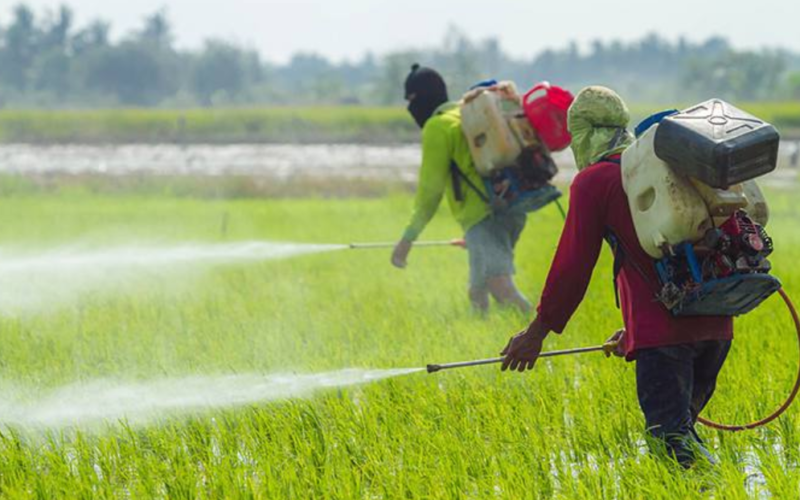Nigeria, the most populous country in Africa, with over 213 million people, has long sought to diversify its economy and reduce its reliance on oil revenue by promoting agriculture. It boasts an impressive 37 million hectares of fertile land, but the country has struggled to maximize its agricultural potential. This problem is exacerbated by the alarming levels of toxic pesticides used in the country, which are not only harmful to human health but have also resulted in international food export rejections.
Farmers in Nigeria face the challenging task of producing healthier crops while reducing their reliance on hazardous chemicals. A significant obstacle to achieving this goal is Nigeria’s reputation as one of the largest importers of pesticides on the African continent, having imported approximately $384 million worth in 2018 alone. Alarmingly, 58% of the pesticides registered for use in Nigeria are banned in Europe due to their high toxicity.
In some cases, these toxic chemicals are so potent that they can have fatal consequences, not just for pests and weeds but for humans as well. A tragic example occurred in 2020 when 270 people in a village in Benue State lost their lives after fishermen used chemicals to catch fish and inadvertently contaminated the community’s primary water source.
Several Nigerian universities have conducted research suggesting that the use of dangerous pesticides and other agrochemicals is contributing to a significant rise in cancer rates in the country. Cancer claims the lives of up to 79,000 Nigerians annually. A recent study revealed that nearly 80% of the pesticides most commonly used by small-scale farmers are highly hazardous.
Addressing this issue presents a significant challenge, as farmers tend to rely on what is readily available and recommended to them. They often receive guidance from marketers and traders who prioritize selling existing products. To effect change, experts believe it is essential to not only restrict the supply of these dangerous pesticides but also provide farmers with access to safer alternatives.
Environmental activists and politicians gathered in Nigeria’s capital, Abuja, in August to assess the current laws related to pesticide importation and use. They were disheartened to discover that there were hardly any regulations in place. Instead, they expressed concerns that two bills being considered in the Nigerian parliament would facilitate the sale of hazardous pesticides by foreign companies, potentially exacerbating the problem.
While Nigeria grapples with the issue of toxic pesticides, the nation’s agricultural sector faces other significant challenges, including the need for high-yield seeds, affordable fertilizers, improved market access, and enhanced security. Many farmers have been displaced from their homes and fields due to conflicts with jihadists in the north and land disputes between herders and farmers. In comparison to these complex challenges, regulating pesticides to safeguard public health should be a relatively straightforward task.
As Nigeria works to unlock its agricultural potential and address its pesticide crisis, it is essential to develop comprehensive policies that prioritize both the well-being of its citizens and the nation’s future prosperity.








